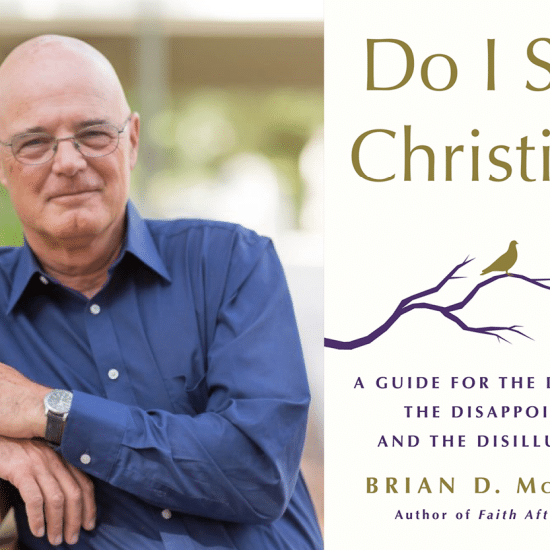A student’s Facebook entry chronicles the painful details of a romantic break-up. Or describes an ill-spent weekend partying with friends. Or scathingly blisters someone who holds differing political views.
Fast-forward a few years. That same student sits in a job interview—or maybe at a conference table with a church staff search committee—and has to answer uncomfortable questions about those entries.
Welcome to the world of social media. Post the gory details of your life on an electronic wall, and it never goes away.
But by the same token, consider a social networking page set up to encourage people to do one act of kindness on a given day, established in memory of a girl who would have turned 13 that day if she hadn’t died in a bus crash on her way to youth camp.
That site—“Maggie Lee … For Good”—drew more than 12,500 members, honoring the memory of Maggie Lee Henson from First Baptist Church in Shreveport, La., and sparking thousands of good deeds.
Recognizing the power of communication
“Too often, people fail to recognize the power of words,” said Bill Tillman, the T.B. Maston Chair of Christian Ethics at Hardin-Simmons University’s Logsdon School of Theology.
Aptly chosen words effectively communicated can build group cohesion and foster cooperation, he noted.
“Social networking sites have tremendous potential for Christians as a place where community-building occurs, where community needs are shared and where meaningful networking happens,” Tillman said.
At the same time, ill-chosen words can rupture relationships and damage character, he noted. And those words can flow too easily from a computer keyboard.
“Unless you envision the people to whom you are writing, the temptation is to say whatever comes to mind,” Tillman said.
The anonymity online community offers can contribute to a “sub-Christian” incivility and crudeness that develops through social media culture, he added.
“There are expressions that might never be used in a conversation with somebody, but online, there’s a crassness that seems to creep in,” Tillman said.
Social networking media offer “the illusion of intimacy in a context in which receivers and users of our instantaneous, often hasty, communications may be friend, foe or stranger,” said David Gushee, professor of Christian ethics at Mercer University.
“Communication in which there is such vast diversity concerning exactly who is communicating with whom and on what terms is inherently problematic.”
Gushee suggested Christian leaders “need to bring older, pre-Facebook moral standards into engagement with the brave new world of social media.”
How much information is too much?
While social media can promote authenticity and transparency, they also can feed the hunger for self-promotion, Tillman noted.
“We need to understand that there are no secrets, but there are things that should be kept close in,” he said.
“When it comes to self-disclosure, there’s a battleground. When are we supposed to extend ourselves in terms of who we are, and when does it become nothing more than an exercise in egotism and narcissism, which are sub-Christian values?”
Not everyone needs to know every detail of everyone’s life—particularly when it comes to ministers who intersect lives at some of their most vulnerable points, he noted.
Gushee stressed the importance of protecting confidential communication.
“We need to be a safe harbor for people who need someone to trust, and both we and those we minister to need to know that the words exchanged in pastoral confidence will not become public knowledge,” he said.
Proceed with caution
“Err on the side of prudence,” Tillman suggested—advice echoed by Mark Wingfield, who works with young ministers in the pastoral residency program at Wilshire Baptist Church in Dallas.
“In our work with training young pastors in practical ministry before sending them off to their first senior pastorates, we advise caution in every aspect of the minister’s online presence. What might have seemed innocuous in college or graduate school may appear in a different light to a pastor-search committee. And once something is online, it lasts forever,” said Wingfield, associate pastor at the church.
For instance, he noted one prospective candidate for a ministerial staff position who included the name of his favorite alcoholic beverage on his Facebook profile—a move that “raised some eyebrows” with a sober-mind search committee.
Furthermore, because online social networking does not allow the nuances offered by tone of voice and body language—and because some people simply fail to communicate clearly online—misunderstandings can arise easily.
“I’m aware of several cases in the last year or two where individuals have posted status updates on Facebook that seemed innocent to them but, given the lack of context available to the casual reader, caused others to put two and two together and come up with five,” Wingfield said. “When you are a children’s Sunday school teacher, youth leader, deacon or person of high profile in a church, you are considered a role model—whether you want to be or not.”
Since social media profiles and posts are accessible to readers of all ages, youth ministers and workers with students particularly should exercise discretion, he suggested.
“You may comment on some perfectly acceptable situation for adults and forget that there are younger eyes watching you as well. In the electronic age, we have to be reminded anew of the old adage to avoid even the appearance of impropriety,” Wingfield said. “Unless you are certain that everyone who reads your Facebook post will have the proper context to know what you mean, proceed with caution.”
Consider legal dangers
Social media offer valuable communication tools to churches, but congregations need to recognize legal dangers inherent in social networking, said Frank Sommerville, an attorney from Arlington. He led a Web-based seminar on Internet issues for churches sponsored by the National Association of Church Business Administration.
Participants in social media need to recognize its nature as public—not private—communication, he advised. Every posting on a social networking wall or profile page becomes a public document.
“Even if you restrict it to family and friends, it is still a public document. There are ways to get into those documents even if they are password protected on your machine,” Sommerville said.
Furthermore, he noted, users should realize once a social media document appears, it never really goes away.
“It is imperative that you think about anything that is posted, it is going to potentially live forever, it potentially could be used in an inappropriate way, it potentially could be masqueraded as being you when it is not yours (and) it potentially could be altered, and you’d have no way of knowing it,” Sommerville said.
Develop a social networking policy
Churches need to establish clear policies that stipulate terms and conditions for any employee—or volunteer acting on behalf of the church—who communicates through social media about work-related activities, he emphasized.
Any social-networking user who writes about church-related matters should be required to write under his or her own name and include a disclaimer indicating opinions expressed are those of the user and are not church-endorsed.
Sommerville recommends a social networking policy include several common-sense prohibitions:
• No disparaging comments. Church staff should not use social media to attack anyone—particularly other employees, church members or vendors who do business with the church. “You may disagree with the church and its officers, provided your tone is respectful and you do not resort to personal attacks,” he said.
• No confidential information. Obviously, sensitive information related to counseling should not be posted, nor should private financial information.
• No copyrighted materials. Copyrighted materials may be posted if the person doing the posting owns the copyright. Otherwise, the person posting it should secure express written permission from the copyright owner. Limited use—such as a line or two from a song or a very brief quote from a book—may be permitted under “fair use” legal doctrine, but Sommerville urged caution.
“One of the hottest areas in copyright law is (the question of) when linking to other websites is legal without written permission and when is it not,” he said. Sommerville recommends securing written permission from the owner before linking to any other website.
• No defamation. In addition to avoiding anything that would ridicule, defame or libel an individual, church staff also should avoid disparaging comments about other churches, he warned.
• No privacy violations. Do not post photos taken in a private setting—including a worship service—without the permission of the individual who is pictured.
“You own your image,” Sommerville said. A person can be photographed in a public setting such as a street, a park or some other open venue, but a church sanctuary does not fit that definition, he asserted.
“Once you are in a private place, you have a right not to be photographed,” he said.
If a church streams its church services live on the Internet or posts any images on social media, he strongly recommends posting signs at church entries indicating people entering are subject to being videotaped or photographed.
Whether on a social networking page, a website or in e-mail attachment, Sommerville advised always securing permission from a parent or guardian before including the image of a child.
“It’s always a good idea not to put last names or addresses on your website” or social media page, he recommended.
Regarding prayer requests, rather than broadcasting specific information about an individual through a social networking page, website, e-mail or Twitter, Sommerville recommended sending out an alert noting a new request has been posted on a secure site. Registered users then can log on to a password-protected site for more specific information.
Monitor with vigilance
Ministers who are “friends” on a social networking site with church members cannot be held responsible for what those individuals post on their own pages. But they should monitor their own online spaces.
“You have no duty to monitor your friends,” Sommerville noted. Youth ministers, for example, “are only responsible for what is posted to their wall,” not others’, he added.
But since Christian leaders are responsible for what is posted on their own sites and may be judged by statements on other sites, Wingfield offers a common-sense housekeeping tip to young ministers at Wilshire—and others who don’t want to be haunted by the ghosts of their online past.
“As someone responsible for personnel management in a church, when we’re looking for staff, I often will do an Internet search on the names of our applicants to see what turns up,” he said. “An easy way for ministers and church leaders to exercise caution is to periodically do a search on their own names and see if there are any messes that need to be cleaned up.”






